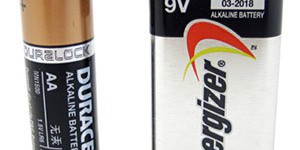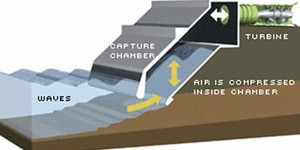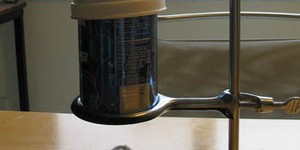Seventh Grade, Energy & Power Science Projects (24 results)
Whether you are working, studying, or being entertained, much of our daily routines rely on being plugged-in. You probably don't spend a lot of time thinking about where all that power comes from, but someone has to! Figuring out the best ways to produce energy is a big job that is growing along with the world's population. Energy production is a complex topic with debates about whether to invest in fossil fuels or clean renewable energies like solar, wind, water, and geothermal. Take a first-hand look at some of the problems and challenges scientists and engineers are tackling as they look at making and storing energy.
|
Select a resource
Sort by
|
Solar cells provide a clean way of making electricity directly from sunlight. In this project you will build a simple circuit and experimental setup to investigate whether the power output of a solar cell changes with ambient temperature.
Read more
Featured
Have you heard that garlic powder is supposed to inhibit the growth of bacteria? Which do you think would make a better disinfectant: a solution of garlic powder or a solution of bleach? This project shows you a straightforward way to compare the effectiveness of different disinfectants (or other antimicrobial agents), by measuring zones of inhibition on a culture plate.
Read more
How do you feel when you ride your bike into a strong wind? Do your legs feel like lead? How about when the wind is at your back? Does that make you feel ready for the Tour de France? In this science fair project, you will investigate how wind-powered devices, like pinwheels, also react in different ways to the direction of the wind.
Read more
You probably use batteries to power different devices every day, ranging from toys to TV remotes, without giving it much thought. Figure 1, below, shows some common types of batteries. Eventually the batteries will die and you have to replace them with new ones (or recharge them if they are rechargeable batteries). How much do you actually know about how batteries work? This abbreviated project idea will give you some suggestions to investigate how batteries perform in common household…
Read more
There is a lot of energy that can be harvested from moving water. Energy can be extracted from water rushing over a waterfall and from the regular patterns of the ocean's tides. The energy that propels waves forward in the oceans can also be extracted and used. But can wave energy power plants be built anywhere there is water? In this energy science fair project, you will use ocean buoy data and mathematics to determine which locations along the coasts of the United States can sustain a wave…
Read more
Solar cells are an alternative method for generating electricity directly from sunlight. With this project, you can get down to the atomic level and learn about the world of solid-state electronics as you investigate how solar cells work. Your experiment will measure the effect of changing light intensity on power output from the solar cell. A possible variation would be to investigate the effect of changing the color of the light.
Read more
The ocean is a wondrous force of nature. It affects the weather, and provides us with food and renewable energy to power our lives. How can the ocean provide us with renewable energy? One way is to extract the energy that is in the waves. There are many kinds of power systems that can be installed to extract energy from the waves, depending on the location. In this energy and power science project, you will build and test a simple model of an oscillating water column device to create power. How…
Read more
In the United States, lighting for homes accounts for about 14% of all residential electricity usage (EIA, 2014). That's billions of dollars worth of electricity per year. The U.S. has passed legislation to phase out older, more inefficient incandescent light bulbs, and they are being replaced with newer, more-efficient bulb types like compact fluorescent lights (CFLs) or light-emitting diodes (LEDs). How much energy (measured in kilowatt-hours [kWh]) and how much money could be saved by…
Read more
Have you considered where the gasoline that your parents put in your car comes from and how long that source will last? The fuel that most vehicles use, gasoline, is a petroleum product. Petroleum is a fossil fuel and is a nonrenewable form of energy, meaning we use it faster than it is able to be reproduced. Burning fossil fuels also produces pollutants that might hurt our environment. Using a kind of fuel from a renewable source would help save Earth's natural resources and cut down on…
Read more
Solar power is hot these days. Gleaming, black solar panels soak up rays on more and more rooftops of homes and businesses providing a clean, alternative source of heat and electricity. You might guess that different times of the day yield different levels of solar power. But just how much does the sun's position in the sky affect the power that solar cells and panels can generate? That's the question this project is all about.
Read more
Coal, gas, and oil are energy resources that are not renewable, meaning that once we use up the world's supply of these natural resources there will not be any left. There is a lot of debate about how long these resources will last. One way to ensure that we will not find ourselves in an energy crisis is to develop energy resources that are renewable. Renewable energy is a resource that cannot be used up. Investigate the many uses of renewable energy: solar energy, wind energy,…
Read more
|
Explore Our Science Videos
The Impossible Arrow Illusion
Is the Egg Raw or Cooked? STEM activity
Build a Mini Trebuchet











